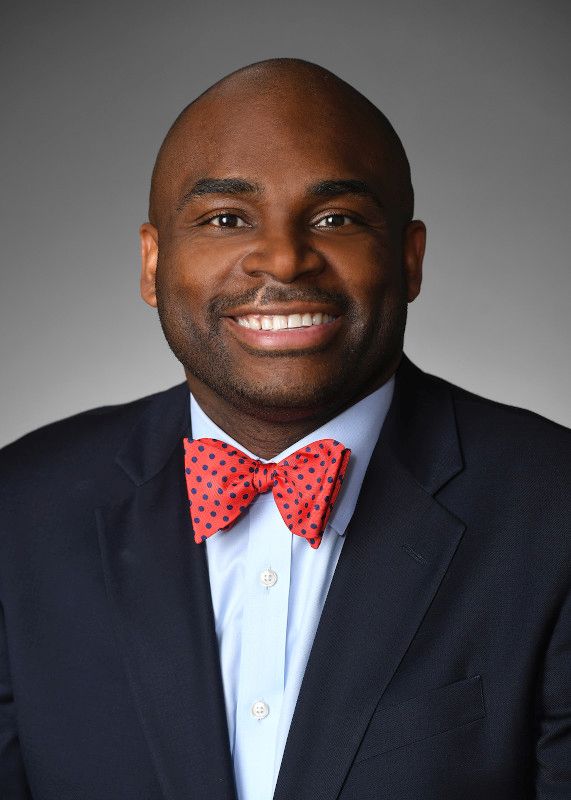
Leon McCrea II, MD, MPH, has been named the Deborah J. Tuttle, MD, and John P. Piper, MD, Vice Dean for Educational Affairs at the College of Medicine.
Dr. McCrea will be responsible for ensuring the success of all aspects of the MD program and oversight of the Office of Educational Affairs. His responsibilities include leading strategic planning and executing changes in the MD program to respond to an evolving medical education and practice environment. He will have unique opportunities for collaboration across many disciplines within the University to create outstanding, innovative educational programs. He will also oversee and facilitate educational research and scholarship in the College of Medicine.
In 2019, Dr. McCrea was named the assistant dean for diversity, equity and inclusion and in 2021, he was appointed senior associate dean of the Office of Diversity, Equity and Inclusion. He has expertly led the College’s efforts to develop policies and processes to bolster equity. He has worked closely with the Office of Faculty to implement best practices for the recruitment, retention and promotion of faculty from historically underrepresented groups in medicine. Similarly, he collaborates with the Offices of Admissions and Student Affairs to promote a diverse student body and sense of belonging among students within the College of Medicine.
Dr. McCrea also serves as the director of the Drexel Pathway to Medical School (DPMS), one of the preeminent postbaccalaureate programs focused on learners who have been personally impacted by health care disparities, socioeconomic or educational barriers. He has been responsible for unprecedented growth of the DPMS program and established novel methods for mentorship and academic support through collaboration with colleges across the institution, alumni and community partners.
Dr. McCrea is an associate professor in the Department of Family, Community and Preventive Medicine and previously served as the program director for the Family Medicine Residency. Throughout his career, Dr. McCrea has been focused on improving methods for competency-based assessment for medical students and residents at all levels.
Dr. McCrea is a nationally renowned speaker and educator, and currently serves as distinguished faculty in the American Academy of Family Physicians Chief Resident Leadership Development Program. He also serves as the president of the Board of Trustees for the Family Medicine Education Consortium, the chair of the Consortium of DEI Health Educators and a member of the Review Committee for Family Medicine for the Accreditation Council for Graduate Medical Education.
He has been widely honored for his work, receiving accolades such as the bronze Program Director Recognition Award from the Association of Family Medicine Residency Directors and the Tracy M. Walton, Jr. Exemplary Service Award from Region II of the National Medical Association. At Drexel University College of Medicine, he was inducted into the Alpha Omega Alpha Honor Society, and he received the Golden Apple Award in 2021.
Dr. McCrea earned his undergraduate degree in human biology from Brown University and his medical degree and Master of Public Health, respectively, from the University of Pittsburgh School of Medicine and the University of Pittsburgh Graduate School of Public Health. He completed his residency in family medicine at Crozer-Keystone Health System, where served as chief resident.
Dr. McCrea has proven to be a collaborative leader, an innovator and a superb communicator who will bring knowledge of the trends in medical education to his new role. As vice dean, his understanding of the changing landscape of academic medicine, and his collegial relationships with faculty across the distributed models of regional, affiliate and branch campuses will serve the College very well.